Wedding Videography: Choosing The Right Cameras
This page includes affiliate links. As an Amazon Associate I earn from qualifying purchases. Read more on our Affiliate Disclosure.
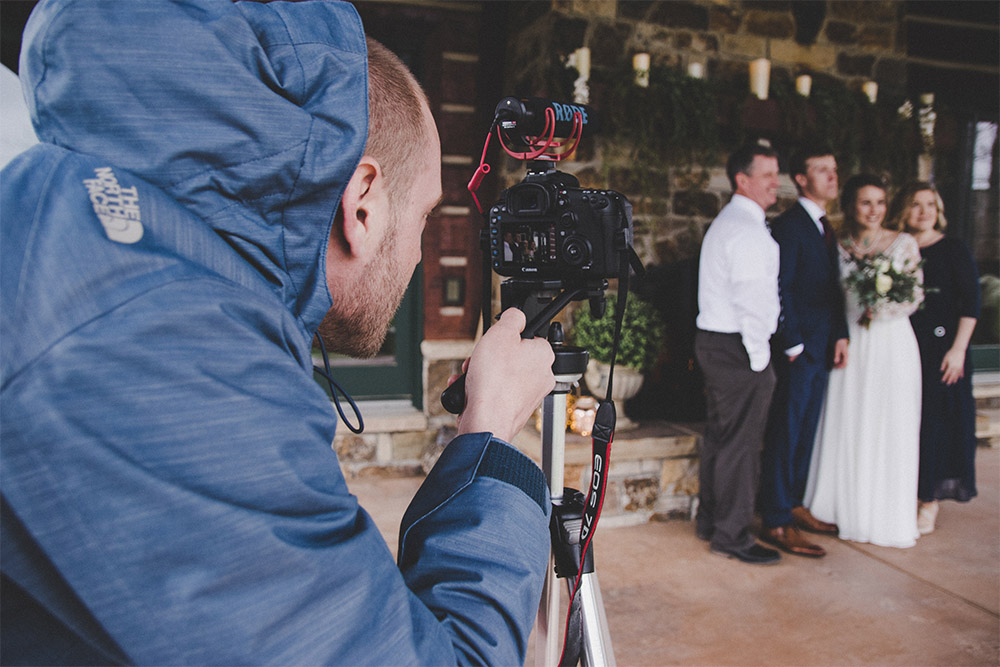
You have an eye for pictures and video and you enjoy being the person running a camera. Maybe you’ve taken a course or watched a bunch of videos online, showing you how to operate your camera, how to frame a shot, or how to get good audio on your videos. Maybe you’ve even done some work for family and friends – that’s great! You’re in the perfect place to make some money doing something you love. But one problem. You’re not sure if the camera you have is good enough to get the job done, and you might be right.
Having the right camera is important. Some cameras have strong photography capabilities, but lack in video options. Some cameras have way more features than you’ll ever need. This article will help show you the basic requirements of a wedding videography camera and give you the confidence you need to trust that you have the right equipment.
The Essentials of a Wedding Videography Camera
Most people start with consumer grade cameras. These cameras do a great job of introducing their users to the basics of photography and videography. They let you play with menus, learn to focus the lens, and most importantly, they give you the ability to change meaningful settings like shutter speed, ISO, and f-stops. These are the pillars of photography, and in turn, how most videographers interact with their video cameras. Having the ability to change these integral settings on your camera is probably the most basic requirement to have. Thankfully, almost all cameras give you this ability! So you can check that off the list.
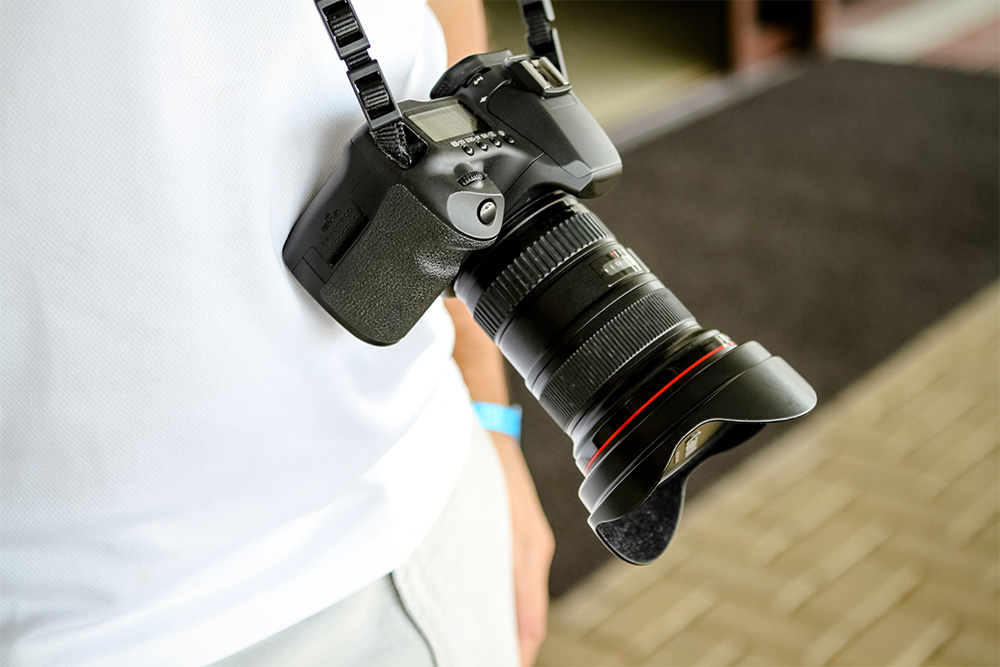
Audio Needs
Another essential need to consider is the ability to plug a higher quality microphone into your camera. These microphones usually have a 3.5 mm male jack that plugs into your camera on the side. As you may have already noticed, the on-board microphone built into consumer grade cameras (and even the highest-end cameras) is usually quite bad. In fact, it’s not even supposed to be good. Manufacturers refer to the audio from the on-board or built-in mics as “scratch audio.” It’s really only meant to be used for reference when mixing in the higher quality audio during the editing process.
Other Considerations
The final two essentials for a wedding videography camera are simple. You need the ability to mount your camera to a tripod. During times when you can’t have motion in your shots, like the ceremony, you’ll need to be able to mount the camera securely and let it record. The standard tripod mount screw size is ¼”. Ensure this is on the bottom of your camera body. Lastly, your camera needs to be able to record the specific definition you need. In most cases FHD, 1920×1080, is enough to start with.
Cameras to Start With
If you’re already into taking photos and recording video, you might have a consumer grade camera that has good capabilities to start with. The Canon 80D and Canon 90D are solid cameras to start with if you’re considering doing both picture and video. You can even get away with using a Canon Rebel camera, like the Canon Rebel T7 or previous models. My very first wedding job was shot on the Canon T1! The Nikon equivalent would be the Nikon D3500.
These cameras are sturdy, but they do have limitations. Sensor quality is usually fairly low, so the image they capture might not be as crisp as you’d like. But starting out, these cameras are great for learning the basics. They can even earn you some money to upgrade!
Cameras to Upgrade To
Prosumer (professional consumer) grade cameras are the next step up. These cameras are the ones the majority of wedding videographers use once they get serious and start booking weddings. Their price point is a little higher, but the cameras are way better. You’ll get a better image out of the camera, more user options, and your style won’t be held back by gear limitations.
A good introduction into the prosumer camera market is the Panasonic GH4. This beautifully compact mirrorless camera has the ability to shoot 4K at an affordable price point. This camera and the next camera recommendation both use the Micro Four Thirds (MFT) lens mount system. This was my very first 4K camera, and I still use it as my C camera today!
The Panasonic GH5 and Panasonic GH5 Mark 2 are the next steps up from there. These two cameras take the capabilities to the next level. They can shoot in 4K at 60 frames per second, which is really important for getting beautiful slow motion footage for your wedding details and creative shots.
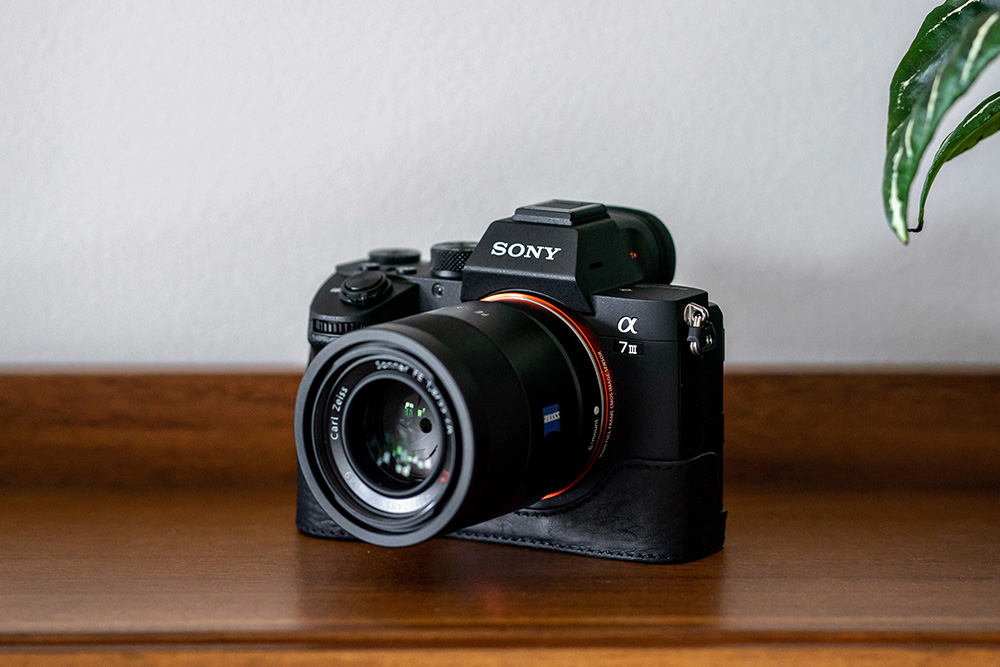
Another two cameras in this range of capabilities and price are the Sony A7 III, as well as the Canon R5 and Canon R6. These cameras are both full-frame cameras, meaning they have a full sized sensor to capture the image. This is important for many reasons, but overall quality and low light capabilities are two of the main ones.
All of these cameras are commercially available and have large user bases, so you can always find help online if you need it.
Cameras to Invest In
When prosumer cameras aren’t providing the specific settings you need or giving you the quality you or your couples expect to see, you might consider purchasing a cinema camera. These are top-end video cameras that open the door to true customization in your videography capabilities. Cinema cameras have no price ceiling, so really consider your needs and align them with the right tool for the job.
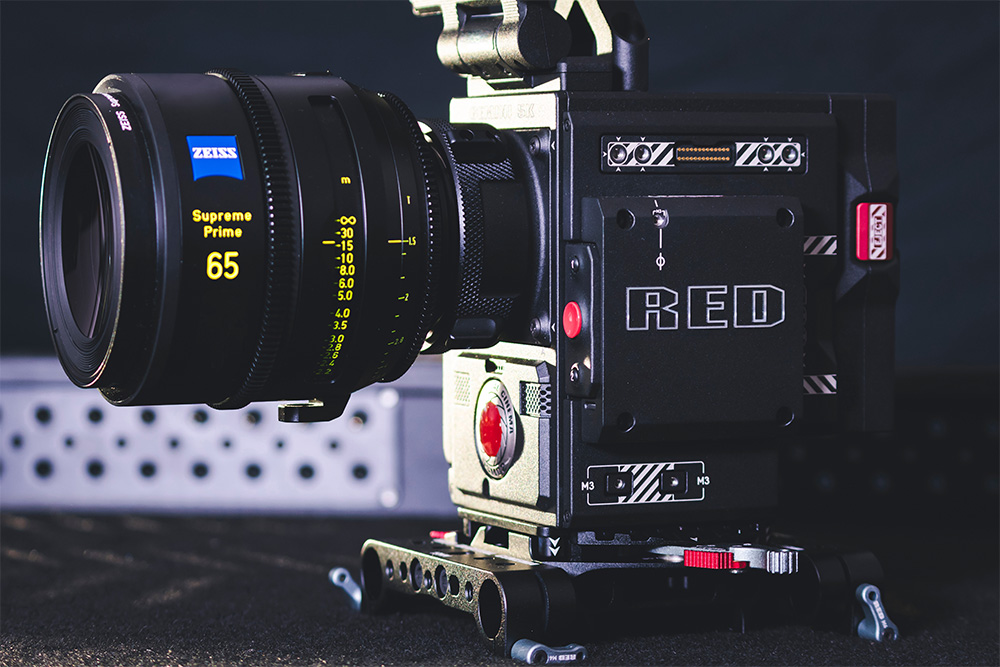
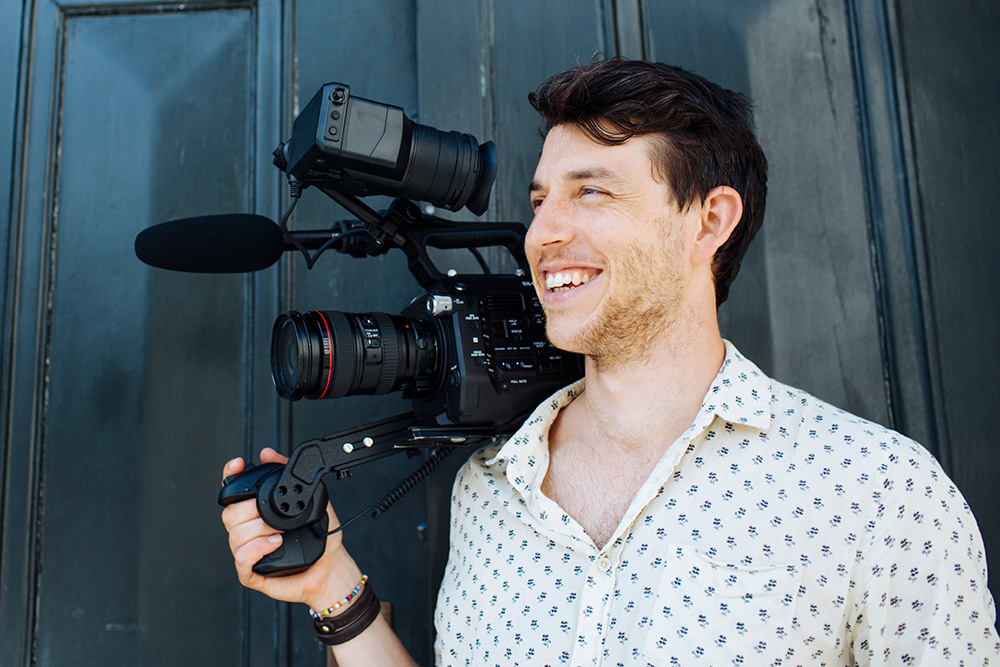
Cinema Camera Options
Blackmagic Design offers a few great cinema camera options for you to consider. The Blackmagic Pocket Cinema Camera 4K and the Blackmagic Pocket Cinema Camera 6K are great cameras to consider. Keep an eye on the capabilities of resolution and frame rates as some of these cameras have historically focused on creating better color science rather than getting more resolution and frame rates out of the box. These cameras, along with all the cameras in this category, have strong build-out ecosystems. They have the ability to add lots of tools and gadgets to their bodies to make them the most useful to their users.
The next camera system you should consider is the Z-CAM series of cinema cameras. This company has a unique history of crowdsourcing ideas and implementing changes to firmware based on their customer’s requests. A truly amazing sight to see in today’s market of big companies – this small company can make changes fast, giving customers new capabilities frequently. My A camera is a Z-CAM E2-F6. I’ve built my camera out with a shotgun mic and Atomos Shenobi monitor, and I’ve used that setup for two wedding seasons unchanged (with the exception of adding a wooden grip for comfort).
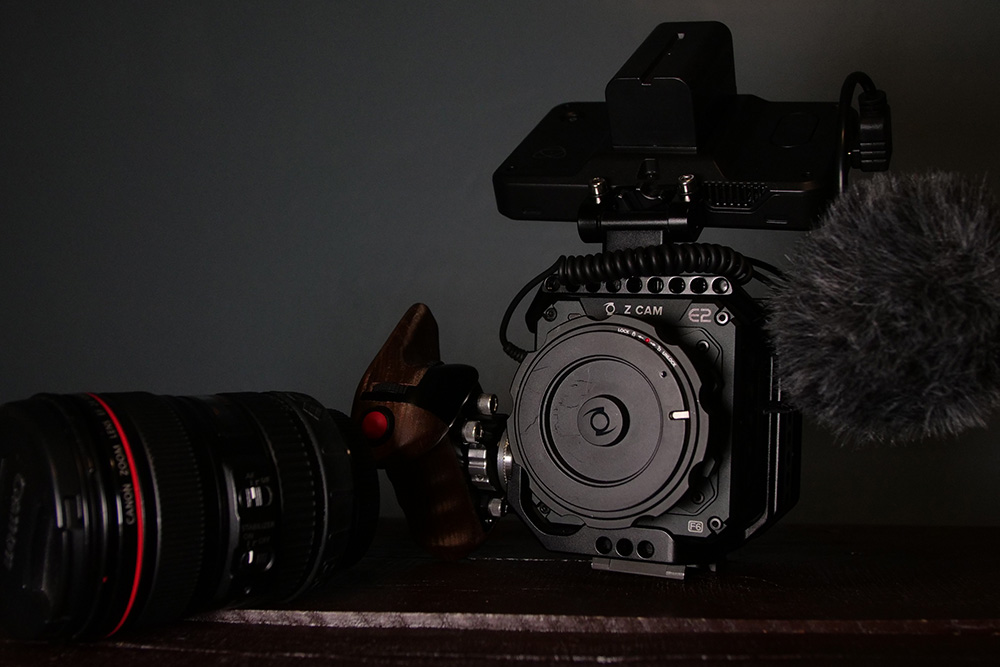
Lastly, you should consider looking at RED’s cameras. These cameras are the transition from the prosumer/professional solo videographer into the world of movie cameras. It may be a little too much for most videographers in the wedding world, but they’re worth a look. The RED KOMODO 6K has gigantic capabilities packed into a small body, and is fairly affordable.
It should be noted again that cinema cameras need additional accessories to make them useful. Most need monitors to see the image being captured, shotgun mics to capture audio, and, of course, high quality lenses to give their high quality sensors room to work. Cinema cameras can approach $8,000 – $12,000 after they’re built out to what you need.
The Hard Truth About Cameras
Whether you’re using a consumer grade camera, prosumer camera, or even a cinema camera, you still have to tell a story. Some of the most compelling films of all times were shot on low quality cameras compared to today’s standards. Telling the story of what you’re capturing is the most important thing you can do – and you can do that on any camera.

Before you make a large purchase, you should try as many options as you can, if possible. We have an affiliate relationship with BorrowLenses, a company that rents cameras and camera equipment. If you’re on the fence about making a purchase, consider renting the camera or lens first and see if you like it. If you rent through our link we may receive a small commission at no additional cost to you.
Learn about how to choose the right lenses to match you perfect wedding videography camera.
